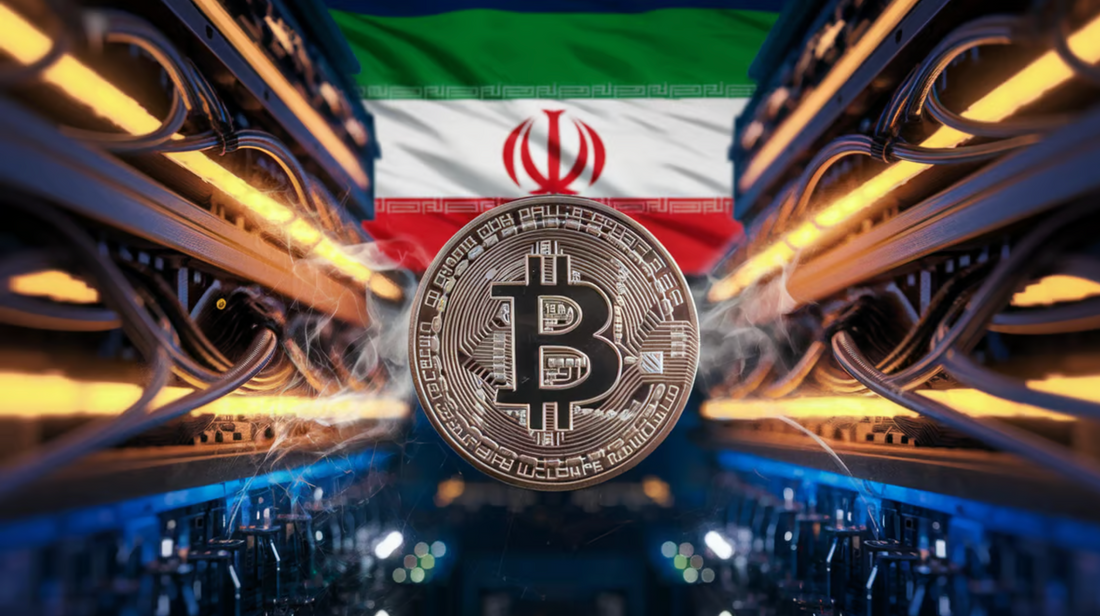Iran’s ongoing energy crisis has become a hotbed of debate, with rolling blackouts disrupting industries, public services, and daily life. One major point of contention is the role of illegal Bitcoin mining, which critics claim is overburdening the country’s electricity grid. This article examines the multifaceted relationship between cryptocurrency mining and Iran’s energy challenges, highlighting the broader systemic issues at play.
Cryptocurrency Mining in Iran: A Double-Edged Sword
Legalization of Bitcoin Mining
Iran recognized cryptocurrency mining as a legal industry in 2018, seeking to capitalize on its abundant, subsidized energy to attract investment. By 2019, however, the government began facing criticism as electricity consumption surged, with illegal mining operations exploiting the grid.
The Shadow Economy of Illegal Mining
Despite efforts to regulate the industry, illegal Bitcoin mining has flourished. These operations, ranging from small household setups to large-scale organized activities, often bypass regulations and use subsidized electricity, intensifying the strain on Iran’s fragile energy infrastructure.
The Energy Crisis: Beyond Bitcoin Mining
Structural Weaknesses in Energy Infrastructure
Experts argue that while illegal mining contributes to power outages, the core issue lies in Iran’s outdated power plants and energy systems. Decades of underinvestment have left the grid ill-equipped to handle growing demand, particularly during extreme weather events.
Impact of Extreme Weather
Iran’s energy crisis has been exacerbated by severe weather conditions, including one of the worst heatwaves in half a century. In summer 2024, demand for electricity skyrocketed as air conditioning use soared. Winter months bring similar challenges as heating needs rise, exposing the country’s lack of preparedness.
Economic and Social Repercussions of Power Outages
Disruptions to Industries and Public Life
The blackouts have caused widespread disruption, particularly in industrial sectors like steel production. Educational institutions, government offices, and public services have been forced to shut down in many regions, leaving citizens frustrated and businesses struggling to cope.
The Financial Toll
Estimates suggest that power outages cost Iran over $25 billion annually. This economic burden, coupled with lost productivity and investor uncertainty, has further strained the already fragile economy.
Bitcoin Mining’s Environmental and Policy Implications
Environmental Concerns
Bitcoin mining’s high energy consumption also has environmental consequences. The carbon footprint of mining operations has raised global concerns, and Iran is no exception, with its reliance on fossil fuels compounding the issue.
Regulatory Challenges
Iran’s legal framework for cryptocurrency mining remains underdeveloped. While authorities have banned the use of subsidized electricity for mining, enforcement is inconsistent. Calls for stricter laws and penalties continue to grow as the crisis deepens.
Iran’s Role in the Global Bitcoin Mining Landscape
Declining Share in Global Mining
Once a significant player in global Bitcoin mining, Iran’s share has dropped sharply. Estimates now place the country’s contribution to the Bitcoin network at less than 0.1%, a dramatic decline from previous years.
Allegations of State-Linked Mining
Controversy surrounds allegations that state-linked entities, such as the Revolutionary Guards, are involved in large-scale mining projects. These operations reportedly benefit from low electricity tariffs, further fueling public discontent.
Solutions to Iran’s Energy Crisis
Modernizing Energy Infrastructure
Investing in modern power plants and renewable energy sources is essential for Iran to stabilize its grid. Upgrading the energy system would not only reduce outages but also create opportunities for sustainable development.
Stricter Regulation of Cryptocurrency Mining
Addressing illegal mining requires stronger enforcement and clearer regulations. Introducing penalties for unauthorized operations and incentivizing compliance can help reduce the strain on the grid.
Balancing Innovation and Sustainability
While cryptocurrency mining has economic potential, it must be balanced with environmental and infrastructural concerns. Iran needs to explore ways to integrate this industry without compromising its energy stability.
Conclusion
The intersection of Bitcoin mining and power outages in Iran highlights a complex web of challenges. While illegal mining has contributed to the crisis, deeper systemic issues such as outdated infrastructure, poor energy management, and extreme weather are at the heart of the problem. By addressing these foundational issues and implementing effective regulations, Iran can mitigate its energy crisis while fostering responsible innovation in the cryptocurrency industry.
FAQs
What is the connection between Bitcoin mining and power outages in Iran?
Bitcoin mining is energy-intensive and has placed additional stress on Iran’s already fragile electricity grid. Illegal mining operations, in particular, exploit subsidized electricity, contributing to rolling blackouts.
How significant is Iran’s role in global Bitcoin mining?
Iran’s share in global Bitcoin mining has drastically declined in recent years, now accounting for less than 0.1% of the total Bitcoin network.
Are power outages in Iran solely caused by Bitcoin mining?
No, while Bitcoin mining is a contributing factor, the primary causes are systemic issues like aging power plants, inadequate fuel reserves, and extreme weather conditions.
What actions has the Iranian government taken against illegal Bitcoin mining?
The government has banned the use of subsidized electricity for mining, shut down illegal mining farms, and introduced cash rewards for citizens reporting unauthorized operations.

